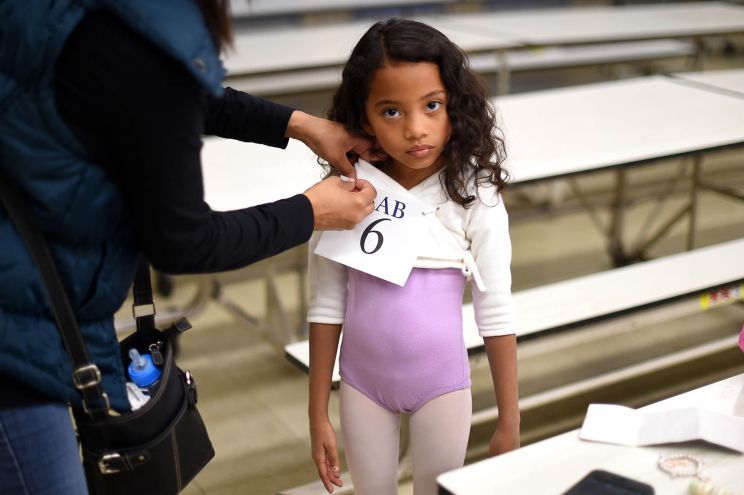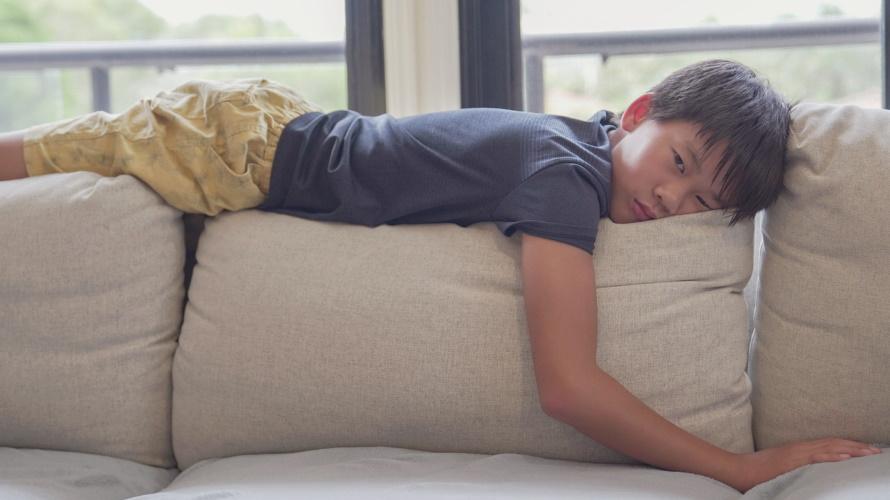7 Ways Your Child Can Overcome Stage Fright
BY VICTOR LOPEZ
Tips, tricks, and insights for parents who want to help their child let go of stage fear
and embrace their inner performer.
Stage fright is every stage performer's worst nightmare. It can affect singers, actors, and dancers of all ages, but it is especially common among young children just beginning their performing arts journey. Described as a specific type of social anxiety by Psychology Today,
stage fright can happen days or weeks in advance or appear suddenly and unexpectedly at the time of performance. Regardless of the timing or the severity of the symptoms, the emotional and psychological impact of stage fright can feel overwhelming to children and leave parents heartbroken, stress-ridden, and eager to find solutions. Stage fright can be devastating to those experiencing it and even more so for parents who want nothing more than to help their child overcome this hurdle on their path to success.
How to Help Your Child Overcome Stage Fright
The good news is that when acknowledged and addressed, stage fright usually only lasts for a short time during the first few performances of any given production. Although common, it can be pretty nerve-wracking for both children and parents. The best way to help a child overcome stage fright is by providing them with the tools they need to manage their anxiety. The following tips are based on expert advice and have been proven to be effective in helping children of all ages deal with stage fright:
Tip #1: Help Them Understand What Stage Fright is and Why it Happens
When children better understand their anxiety, they are better equipped to deal with it. The American Psychological Association defines stage fright as "a specific type of social anxiety that can affect performers before or during a performance." Kids need to know that this type of anxiety is normal and that many people experience it at some point in their lives.
Tip #2: Acknowledge Their Fear and Offer Your Support
Never underestimate the power of simply acknowledging your child's fear and offering your support. Let them know that you understand how they feel and reassure them that you will be there for them – regardless of how they perform. Reassure your child that stage fright is temporary and will pass once they begin performing, but also let them know you're always available to help if they need it.
Tip #3: Help Them Visualize Success
Visualizing is a powerful tool for children and adults alike. When kids can see themselves succeeding, it gives them the confidence they need to push through their fears. Help your child visualize their success by sitting down with them and coming up with a mental picture or video of them performing beautifully on stage. The more specific you can get in terms of details, the better.
Tip #4: Create a Mantra or Affirmation
According to an expert featured in the Huffington Post, one of the most effective ways parents can help children calm their anxiety is through affirmations, mantras, and self-talk statements designed to reduce their stress when things get tough on stage. A good mantra might be something like "I am great at this," or "This feeling won't last forever."
Tip #5: Develop Relaxation Techniques
In addition to affirmations and self-talk, relaxation techniques can be an excellent way for children to manage their anxiety before and during performances. Deep breathing exercises, visualization, and progressive muscle relaxation are great options. If you're not sure how to do any of these things, there are several online resources available.
Tip #6: Socialize with Other Performers
Children find comfort and strength in shared experiences. By socializing and connecting with other performers, children can create a sense of connection and community that helps reduce their feelings of isolation and fear and feel seen by others who understand what they're going through.
Tip #7: Encourage Them to Practice and Prepare Thoroughly
One of the best ways to help children overcome stage fright is to encourage them to practice and prepare thoroughly. This gives kids the confidence they need when it's time for them to perform because they know their lines or songs well enough that stage fright won't interfere with their performance.
The Key to Overcoming Stage Fright in Children is Support and Patience
It is important to remember that different approaches work for different children, so it is important to experiment with a variety of suggestions until you find one that works best for your child. If all else fails, just remember: Stage fright is totally normal and typically temporary. Allow both your child and yourself the patience and support necessary to navigate this normal rite of passage for performers, and rest assured that this too shall pass.
RELEVANT RESOURCES TO EXPLORE
COMING SOON!










